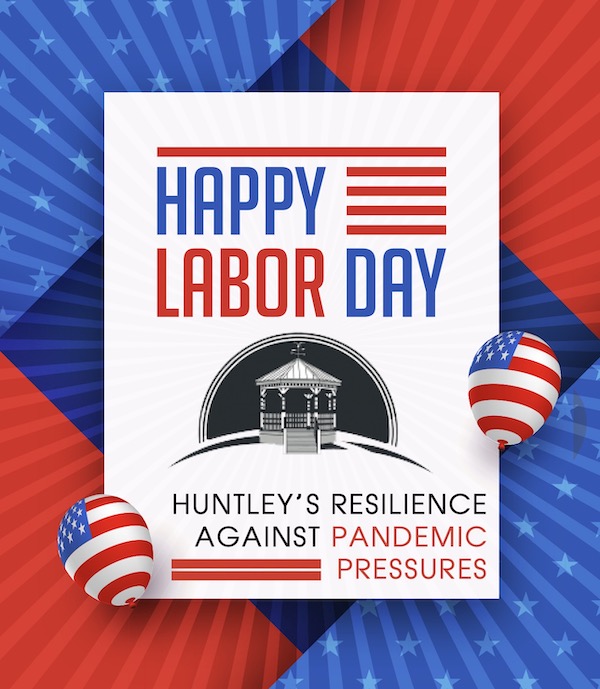
Huntley, Il – With the emergence of the Coronavirus Pandemic, the Labor Day observance may be subdued nationwide, but creativity, adaptability, and resilience in places such as the Village of Huntley will keep the focus on honoring worker contributions. Yet, continued reports of positive cases of COVID-19 in Illinois have given us so many reasons for pessimism for an economic recovery and job picture. That’s why any victories with the economy give us a ray of optimism for a rebounding job market. Melissa Stocker spreads her optimistic view on the Huntley economic climate in her position as a specialist in Economic Development, Marketing and Recruitment. What the Village of Huntley seems to be having is an economic upturn. More businesses are calling Huntley their home.
“Just recently, Popeye’s Chicken, Thornton’s Gas and Car Wash, and Hampton Inn and Suites have broken ground on Route 47. Jiffy Lube and Jewel are well underway, and a number of our existing businesses are expanding their operations,” Stocker said. All of these things certainly will reflect on the job climate in Huntley.
Long before COVID-19 forced Governor J.B. Pritzker’s hand in closing nonessential businesses, leaders in Huntley had laid the groundwork for a resilient and adaptable business climate. No question Huntley’s business community would certainly face a serious test as would thousands of other communities staggering under the pressures of COVID-19. “In true Huntley spirit, our community has shown strong support for our small businesses and restaurants. The village has acted as a source of information to assist businesses through the various phases of the Stay at Home order, the Restore Illinois plan and as a resource hub providing COVID-19 related updates including financial grants and loan programs,” Stocker said.
She has directed individuals and businesses to resources on Huntley.il.us and the HuntleyFirst.com website. Stocker has also directed businesses to examine a number of Small Business Administration (SBA) programs to offset the damage done to these businesses. One such program of financial relief is called the Payment Protection Program (PPP) and another is the Economic Injury Disaster Loans (EIDL). Each program works separately.
In Pritzker’s series of phases for reducing coronavirus cases and for helping businesses climb out of varying levels of economic stress, the Restore Illinois plan reached the milestone of Phase 4 guidelines in late June. When asked what steps were taken to improve the economic climate in Huntley, Stocker examined the creativity, adaptability, and resilience of the village’s businesses.
“Virtual programs of all sorts-fitness, library, gymnastics, educational and more have been created. Online stores have been enhanced, and in some cases started from scratch. Curbside pickup of groceries, hardware, paint and restaurant meals have made it easy for consumers to remain safe-and have allowed businesses the opportunity to continue operations and provide employment opportunities. Many of our service businesses including restaurants and salons are working under new protocols, many of which reduce the number of people allowed in the business at one time,” Stocker said. She talked about businesses stretching operating hours, staggering employee shifts and client appointment times.
Both the McHenry County Workforce Network and Kane County Workforce Development Division are assisting employers and job seekers. Stocker is a member of the Business Resource Team for the McHenry County Workforce Network. She’s part of a team of economic development communicators that keeps the Workforce Network in the loop on economic news in the communities.
Thomas Faber, a business service representative of the McHenry County Workforce Network, is also part of the Business Resource Team. Faber connects with businesses to see what they need for employment in such areas as training for new employees.
“Lately I’ve had more employers contacting me with a need for employees rather than job seekers coming into our office looking for jobs,” Faber said. He notes it’s usually the other way around.
“This points to the fact there are companies expanding, doing things related or impacted by COVID-19,” Faber said.
In the world of business before COVID-19, “everybody needed people because the economy was doing so well, so every industry pretty much looked for people. Now, there’s still a high demand for people, but just in certain industries and sectors,” Faber said. He points to the restaurant industry and day care industry hit really hard, while companies that supply medical equipment for example, are very busy.





